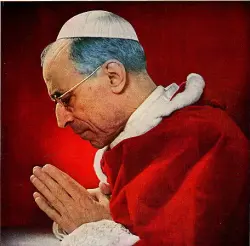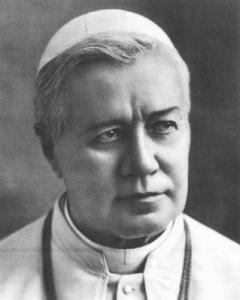Understanding the “Russian Soul”
The “Russian Soul” has been defined in several ways, and has been coloured at times with nationalistic undertones.
But when I was at school, and we were studying the Napoleonic invasion of Russia of 1812, the Russian soul was described to me as something more strictly religious, and certainly belonging to a Weltanschauung rather than to a national identity. It was explained to me as an ability for bearing suffering that has roots in the Russian cultural mix of deep religious identity and strong pessimism. Putting it in simple words: when suffering comes, the Russian both expects and embraces it. He expects, and embraces it, with a strength no other people (apart, perhaps, from the Japanese, obviously for different reasons) knows.
I think this explains an awful lot of things. Napoleon entering Moscow thought that Alexander I would have agreed to start negotiations, because this is what Europeans (even expressions of the Italian genius like Napoleon) do. Little he knew that, for a Russian, such a negotiation would have been simply inconceivable, no matter the suffering and destruction already inflicted on the Country, or to come. It took – even after seeing Moscow set up in flame by the same Russians – even Napoleon weeks to fully realise what was going on, and the rest is history. If you ask me, the lesson is clear: Europe was not culturally prepared for this kind of endurance, for this show of quiet, resigned, but absolutely steely determination to suffer to the end.
Fast forward 130 years, and Adolf makes the same mistake. Granted, the country was now officially the Soviet Union, and (officially) atheist, and (officially) interested only in the triumph of the Proletariat. He likely thought that he would find a different cultural environment, a country half-destroyed by Stalinist army purges and communist indoctrination. It is, in fact, widely reported that he said words to the effect that you only needed to kick the door, and the whole rotten edifice would come tumbling down. Like Napoleon, he was wrong. An extremely strong resurgence of the national feeling (and even, according to documentaries I have seen, of the religious feeling, encouraged by Stalin after seeing that the “Proletariat” stuff had zero traction!) made of the German invasion “1812 Mark II” or, as it would be remembered (and notice the words) the “Great Patriotic War”. Russia (even if disguised as part of the Soviet Union) had found itself again, and it had found itself again because the hour of suffering had come. This suffering happened on a scale which, I am sure, most Westerners do not know even today. I do not know any other example in history of a resistance like the one put on in Leningrad. This was suffering on a scale no other Western people could, ever, endure.
Fast forward, again, to 2022. Russia is Russia again and, slowly but surely, it is getting Christian again. The cultural imprinting is still strong, and getting stronger by the year. Like Napoleon and Hitler before them, but worse than them, von der Leyen & Co. do not understand anything, not the first thing, of what is happening.
Brussels may know it or not, but this conflict is now, for the Russians, about the integrity and the future of Russia, not about the Ukraine, or “the Donbas”, or the massacre of ethnic Russians. The amount of suffering that the Russians will be able to endure themselves, and to inflict to their enemies, is on a scale sheer unimaginable to pampered Brussels bureaucrats. The only ones that are aware of what is going on are those culturally prepared to understand Russia, and there aren’t many of those in the corridors of power, both in Europe and in the US.
This is what makes this situation so dangerous. The NATO upper echelons just have no damn idea what will happen to them if they think they can push things further than Russia will allow. It’s a bit like Saddam-USA in 1991. “You will not choose to escalate to that point, surely?” “You bet I’ll do!”
Russia is Russia again. The extremely strong, 1000 years long cultural climate is still there, and getting stronger. Then as now, the Russians have an ability to suffer unknown to the other Westerners.
I thought I would post below a beautiful page of Russian culture, which is, I think, a delicate, tender insight in the “Russian soul”. It is, as many of you will immediately recognise, from a beautiful work of Anton Chekhov. It is as “Russia” as it comes. It is like being back in school, and listening to my late history teacher, (may the Lord have mercy on his soul, and I am grateful for a Hail Mary for him).
Enjoy.
Posted on October 17, 2022, in Catholicism, Conservative Catholicism, Traditional Catholicism and tagged Russia, special military operation, Ukraine. Bookmark the permalink. 3 Comments.




















Excellent piece, Mundabor. The intense cultural bond between Russians (and the bond between Russians and their homelands ( is difficult for Modernized Westerners to understand.
On top of the failure to understand the Russians, we have all these propaganda pieces in the news about how the Russians are losing the war, Russia is reeling from sanctions, Putin is in trouble, etc. etc. etc. None of that conduces to realism either.
I have enjoyed the friendships of several Russians in my life so it makes it hard for me to even listen to the ‘western version’ of the war news. And I think I am a bit surprised that there is so little concern about the real enemy the West (and the world) faces: China. I am not too hopeful that the world will wake up to that giant, but I am prayerful.